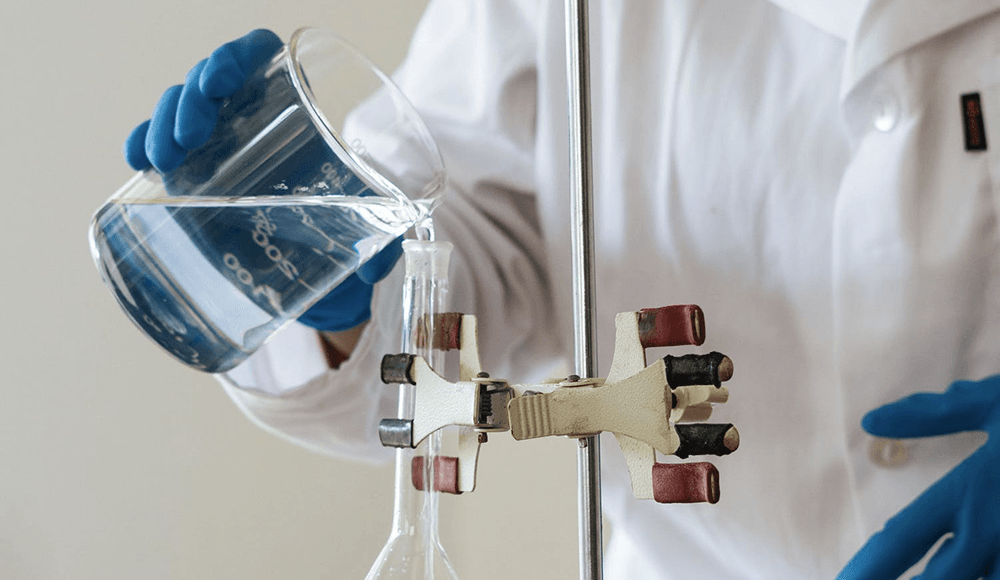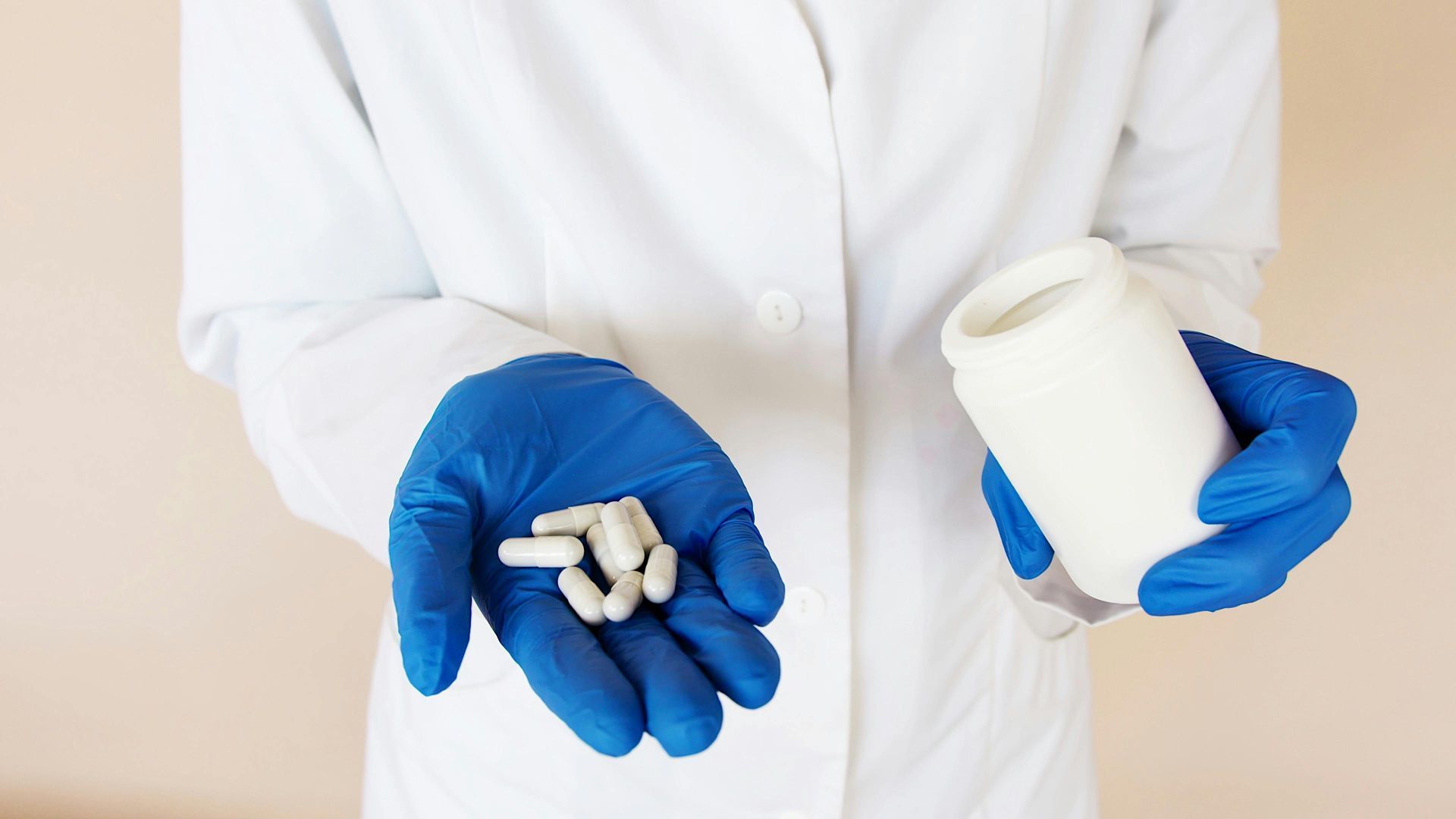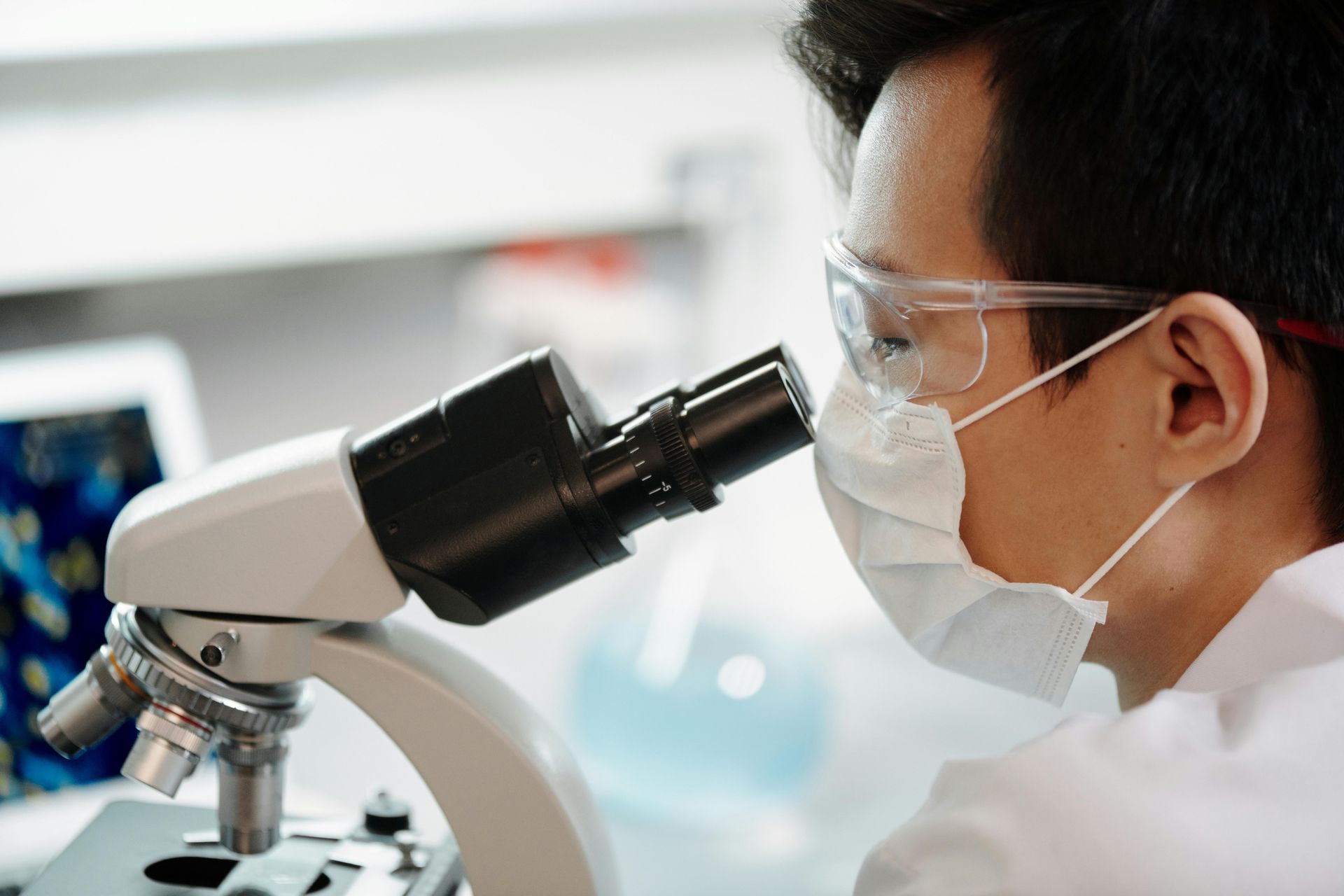What Is Good Laboratory Practice (GLP)? A Quick Guide for Beginners
Updated, April 2023
Quality control is a field every manufacturer is familiar with. To produce something that your customers will be willing to pay for, you have to check the quality of the materials used to make it, the production processes involved, and the final product itself to weed out any defects.
In the medical world, however, defects can manifest in ineffective or even unsafe drugs and medical devices that can harm the health of your users.
- What is Good Laboratory Practice? An Overview
- History of Good Laboratory Practice
- What Are Good Laboratory Practices in the Pharmaceutical Industry?
- Why GLP Matters to the Medical Industry
- What You Can Expect from The Good Laboratory Practices Certification Programs with CfPIE
- GLP Facility Certification Program
- Are Your Employees GLP Certified?

This high-stakes environment means that the pharmaceutical industry needs an especially stringent set of quality control standards for medical research, known as GLP or Good Laboratory Practices.
What is Good Laboratory Practice? An Overview
The OECD defines GLP as a “quality control system covering the organizational process and the conditions under which non-clinical health and environmental studies are planned, performed, monitored, recorded, reported, and retained.”
In other words, testing facilities undergoing research studies must report to the appropriate authorities to ensure their clinical trial activities are safe and controlled. In addition,
GLP demands that medical companies fulfill various obligations when it comes to the overall safety of their clinical or exploratory studies:
- Testing facilities and equipment must be maintained appropriately for undergoing studies.
- Operating procedures and laboratory practice regulations must be standardized and adequately documented.
- Data and reports must be collected to keep records of daily operations.
- Facility staff, including quality assurance specialists and management teams, must have adequate training and be held accountable to GLP compliance.
GLP Good Laboratory Practice originally began under the United States Food and Drug Administration back in the 1970s, but today has expanded into Canada (with the Standards Council of Canada), Denmark, New Zealand, and now the world through OECD.
So why is there so much interest in GLP among medical organizations worldwide?
History of Good Laboratory Practice
The United States Food and Drug Administration (FDA) developed its Good Laboratory Practices guidelines to cover non-clinical testing and recordkeeping in response to failures in toxicology evaluations in the 1970s.
The specific document, the
Guidance for Industry Good Laboratory Practices Regulations, was drafted after executives at Industrial Bio-Test Laboratories falsified the safety data of their products before submitting them for government approval.
The practice now extends to Canada as well, with
The Standards Council of Canada (SCC) assisting with not only local testing but also alignment with international standards of testing to facilitate foreign trade. New Zealand and Denmark released their own GLPs in the 1970s as well.
In 1992, The Organization for Economic Co-operation and Development (OECD) officially adopted GLP and began making it applicable on a global scale.
What Are Good Laboratory Practices in the Pharmaceutical Industry?
GLPs matter in the pharmaceutical industry because they allow laboratory studies to collect and verify their data comprehensively and ensure quality control in the final product. In other words, the results of the testing are more reliable under GLP.
QC specialists in the medical field also use GLP to work with various aspects of testing internationally, allowing for comparisons between studies completed in different laboratories.
In the context of pharmaceutical quality control, good lab practices mainly look at the following:
- Resources: Supplies, equipment, lab testing facilities, and staff.
- Testing: Specifically, what the test is experimenting with and what clinical study subjects are used for testing.
- Protocols: Standard operating procedures, rules, and transparency practices.
- Reporting: Collection of raw data, generating the report, and archiving the study.
By independently monitoring research and laboratory studies, GLPs hold non-clinical testing up to a high standard no matter where and by whom it’s being conducted.
Why GLP Matters to the Medical Industry
You might wonder why businesses in this field invest in GLP training for their staff. Following Good Laboratory Practice guidelines has several benefits for both public health and the facility’s regular operations.
Improving Operations Through Recorded Measurements
A facility with strong GLP practices understands the importance of keeping a paper trail of all laboratory measurements. This way, figures and data recorded during testing can be traced back to the source whenever necessary.
Once studies have generated findings, verifying those conclusions using empirical data and processes by backtracking where they came from is possible. The end result is a more trustworthy study.
Ensuring Data Quality
Laboratory studies are intended to collect potentially useful information that could lead to the developing of new drugs and treatments. This data is considered more reliable when it’s collected under a GLP-compliant lab, resulting in the following:
More confidence in the conclusions and findings of the laboratory study, which also reduces the need for regulatory compliance investigations.- More productivity when it comes to generating useful results and avoiding false findings.
- Stronger reputation for the facility and the company as a whole.
Accelerating the Time-To-Market
These benefits ultimately result in an improved time-to-market for new pharmaceutical products. Instead of wasting time with ineffective studies, additional testing, or going through investigations to find out what went wrong, GLP practices ensure that you have all your data ready from the beginning to empower conclusive results.
What You Can Expect from The Good Laboratory Practices Certification Programs with CfPIE
Knowledge of good laboratory practices is necessary for producing quality, trustworthy medical research, which contributes to developing more effective and safe drugs and medical products. Therefore, CfPIE’s programs were developed to instill the skills and training necessary to enact GLP throughout individuals' and facilities' daily operations.
Good Laboratory Practices Certified Compliance Professional
Our Good Laboratory Practices Certified Compliance Professional (GLPCP) certification is designed for current or future compliance professionals, a high-demand career path that is both rewarding and a site of constant innovation. GLP deals with the consistency and reliability of pharmaceuticals and their manufacture and distribution beyond the lab.
The GLPCP Track offers flexible learning to tailor your coursework to your current or future career. Building on a solid GLP foundation, this track allows you to choose four courses from nine core topics, including biostatistics, clean room fundamentals, SOP creation and validation. These essential skills you learn while receiving
Good Laboratory Practice Certification will benefit you and your employer, and choosing GLP-related courses ensures a wide scope of topics to study.
Knowledgeable, student-focused instructors lead courses such as Biostatistics for Non-Statisticians with a mix of real-world applications and a focus on clarity that underscores the course title. Students without a background in mathematics or statistics will find the material practical in focus, spotlighting communication with statistician colleagues for mutual understanding and benefit.
Who Can Attend?
Obtaining a good laboratory practices certification should be a goal for many types of medical specialists looking to advance their career, including:
- Regulatory Affairs and Compliance personnel
- Laboratory scientists
- Study directors
- Principal investigators
- QA and QC management
But no matter what field you’re from—whether it’s medical device manufacturing, cosmetics, pharmaceuticals, food, or anything else—obtaining a certification on GLP guidelines is thankfully more manageable than ever, thanks to online courses from
certified course directors at CfPIE. So if health and safety is your passion, this is an excellent career track.
Good Laboratory Practices (GLP) for Nonclinical Laboratory Studies
Our Good Laboratory Practices (GLP) for Nonclinical Laboratory Studies course will provide participants with a comprehensive understanding of the terminology, regulations, and mandated practices for conducting a study in compliance with GLP regulations.
Those attending will get a thorough briefing on the relevance of accurate documentation, calibration and maintenance of instruments, and validation of relevant methodologies. In addition, we will examine the requirements for training staff, good documentation practices, study protocols and reports, and standard operating procedures.
This course covers a range of essential topics, including:
- Issues involving the roles and responsibilities of the Test Site Management and the Study Director in planning, supervising, and managing nonclinical studies.
- Audit activities must be conducted to assure management that laboratory studies comply with the regulatory standard stated in the study protocol.
- How to manage regulatory inspections and respond to findings of non-compliance noted during a regulatory agency inspection. Inspection results for sponsor companies and CROs are included in these discussions.
- The functions of the Quality Assurance Unit (QAU) and the need to effectively audit laboratory activities and data for compliance with GLP regulations and internal SOPs and test methods.
Who Can Attend?
Our three-day GLP training course is designed for all Scientists (managerial and laboratory), Regulatory Affairs, and Compliance personnel who actively participate in regulated laboratory studies. The course will benefit professionals whose job function necessitates the generation, evaluation, assurance, and submission of laboratory data to regulatory agencies. In addition, principal Investigators, Study Directors, Study Monitors, and professionals aspiring to these positions will derive benefit from this course.
This course is also useful for quality assurance and quality control managers, coordinators of multi-site projects, regulatory affairs professionals, auditors, and senior management interested in effective QA techniques. Our course will also benefit professionals from CROs operating under the GLP regulations.
New and experienced staff from the food, pharmaceutical, medical device, nutraceutical, agrochemical, and cosmetics industries will learn the fundamental principles and applications of GLP, particularly in the complex multi-site environments of today’s industry.
GLP Facility Certification Program
CfPIE offers a unique Good Laboratory Practice Training and GLP Facility Certification Program that provides clients with the documentation required to prove that their facilities and quality systems are entirely GLP compliant.
Before starting the 5-step GLP certification process, a CfPIE GLP training course auditor will conduct a Discovery Session to assess your information, starting with a phone call or web conference.
- The Audit: CfPIE will thoroughly audit the client's facility, quality systems, and documentation practices.
- The Scorecard: The CfPIE audit report will indicate how well the facility scores in key areas such as data integrity, quality assurance, and management practices.
- The Review: CfPIE reviews the scorecard results with the client to define areas in need of improvement and suggest a course of action.
- The Confirmation: CfPIE returns to re-score the facility based on the implementation of both required and suggested changes. Certification is issued if compliant.
- The Follow-Up: CfPIE will perform re-inspections on an annual basis to help ensure that the facility remains fully compliant.
Who Can Attend?
CfPIE offers a unique Good Laboratory Practice Training and GLP Facility Certification Program that provides clients with the documentation required to prove that their facilities and quality systems are fully GLP compliant. CfPIE provides GLP Facility Certification for the following:
- Pharmaceutical industry
- Medical Devices industry
- CfPIE is unable to provide GLP facility certification for those manufacturing Cannabis, Cosmetics, Supplements, or Food Products.

Instilling GLP Values Into Your Facility Operations
Good Laboratory Practices can’t be implemented overnight. It takes a lot of forward planning and collaboration among everyone in the business to achieve true Good Laboratory Practices.
For instance, an official Quality Management System is necessary to fulfill the basic requirements (such as documenting data and operating procedures), and measuring tools and equipment must be regularly cleaned and calibrated before use.
Most importantly, getting every staff member on board is a major step. Not only does upper management need to be on board, but individual employees and staff members need to have the right knowledge and experience with GLP when it comes to working on the factory floor. Only then can you identify potential quality issues and guarantee compliance.
Are Your Employees GLP Certified? Make Sure They Are with CfPIE
Compliance with GLP is necessary for a heavily regulated environment like the medical industry.
Businesses focusing on GLP compliance can develop and produce new pharmaceuticals and treatments cost-effectively. Compliance managers will also better understand compliance requirements, best practices, and other critical information related to
GLP certification.
Are you looking to become GLP certified? CfPIE’s
dedicated GLP Certification Program is designed for industry professionals looking to become GLP certified. If your organization or testing facility has more than ten employees looking to get certified, we also offer complete program tracks on-site at your facility.
In addition, if you are looking to get your facility itself certified, CfPIE may be able to help through our
GLP Facility Certification Program.
Blog Categories
Stay Informed


